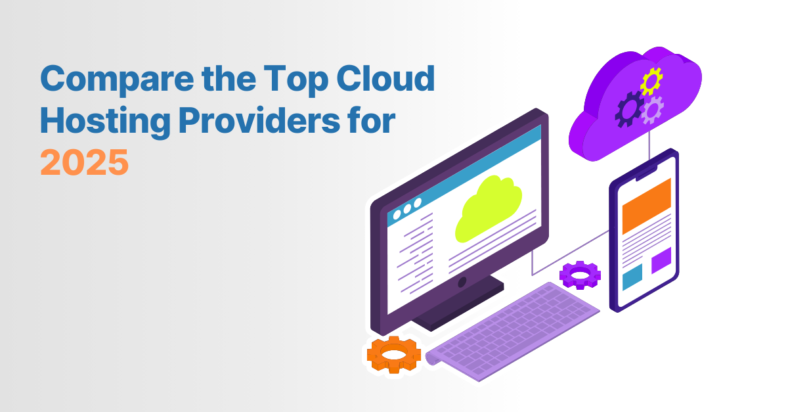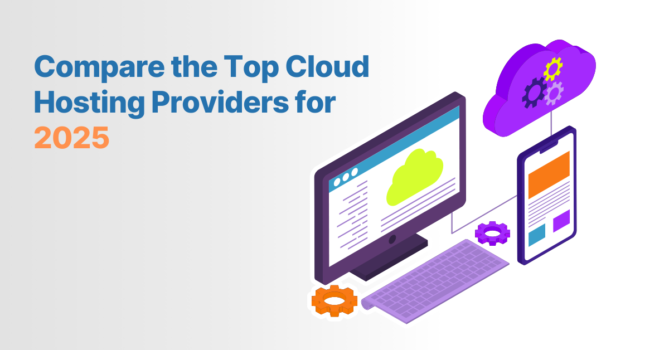Cloud hosting is an excellent choice for businesses and developers looking for scalable, high-performance, and secure hosting solutions. In this article, we compare the top cloud hosting providers for 2025 based on features, performance, pricing, and support.
1. AWS (Amazon Web Services)
Best for: Enterprise-level scalability and reliability
AWS is a leader in cloud hosting, offering a vast range of services for businesses of all sizes.
- Pros: Highly scalable, global data centers, strong security features.
- Cons: Complex pricing structure, may require technical expertise.
2. Google Cloud Platform (GCP)
Best for: AI-driven applications and high-performance hosting
Google Cloud is known for its fast infrastructure and seamless integration with machine learning tools.
- Pros: Cutting-edge AI and machine learning tools, excellent uptime, competitive pricing.
- Cons: Can be challenging for beginners.
3. Microsoft Azure
Best for: Businesses using Microsoft products
Azure is a top choice for companies that rely on Microsoft’s ecosystem, offering seamless integration with Windows-based applications.
- Pros: Strong enterprise support, flexible pricing, hybrid cloud options.
- Cons: Steeper learning curve for non-Microsoft users.
4. DigitalOcean
Best for: Developers and startups
DigitalOcean provides simple, cost-effective cloud hosting with a focus on developers.
- Pros: Easy-to-use dashboard, predictable pricing, great for small to mid-sized projects.
- Cons: Limited advanced features compared to AWS and Azure.
5. Vultr
Best for: Budget-friendly cloud hosting
Vultr offers affordable and high-performance cloud hosting with multiple global data centers.
- Pros: Competitive pricing, user-friendly control panel, great for small businesses.
- Cons: Limited enterprise-level features.
6. Linode
Best for: Reliable and developer-friendly cloud hosting
Linode is known for its powerful cloud solutions at an affordable price, catering to developers and small businesses.
- Pros: Transparent pricing, strong performance, good customer support.
- Cons: Fewer enterprise-grade solutions compared to AWS and Azure.









